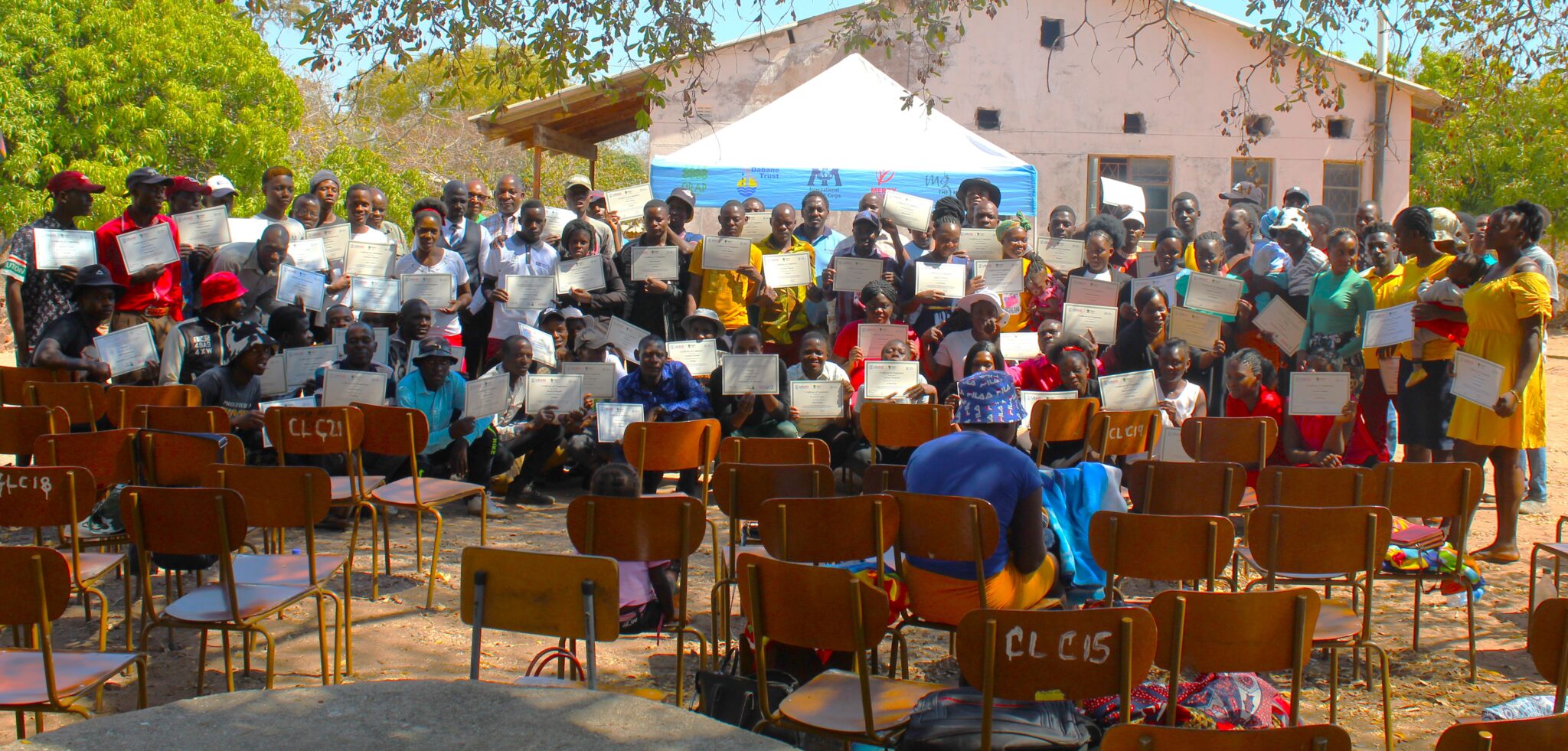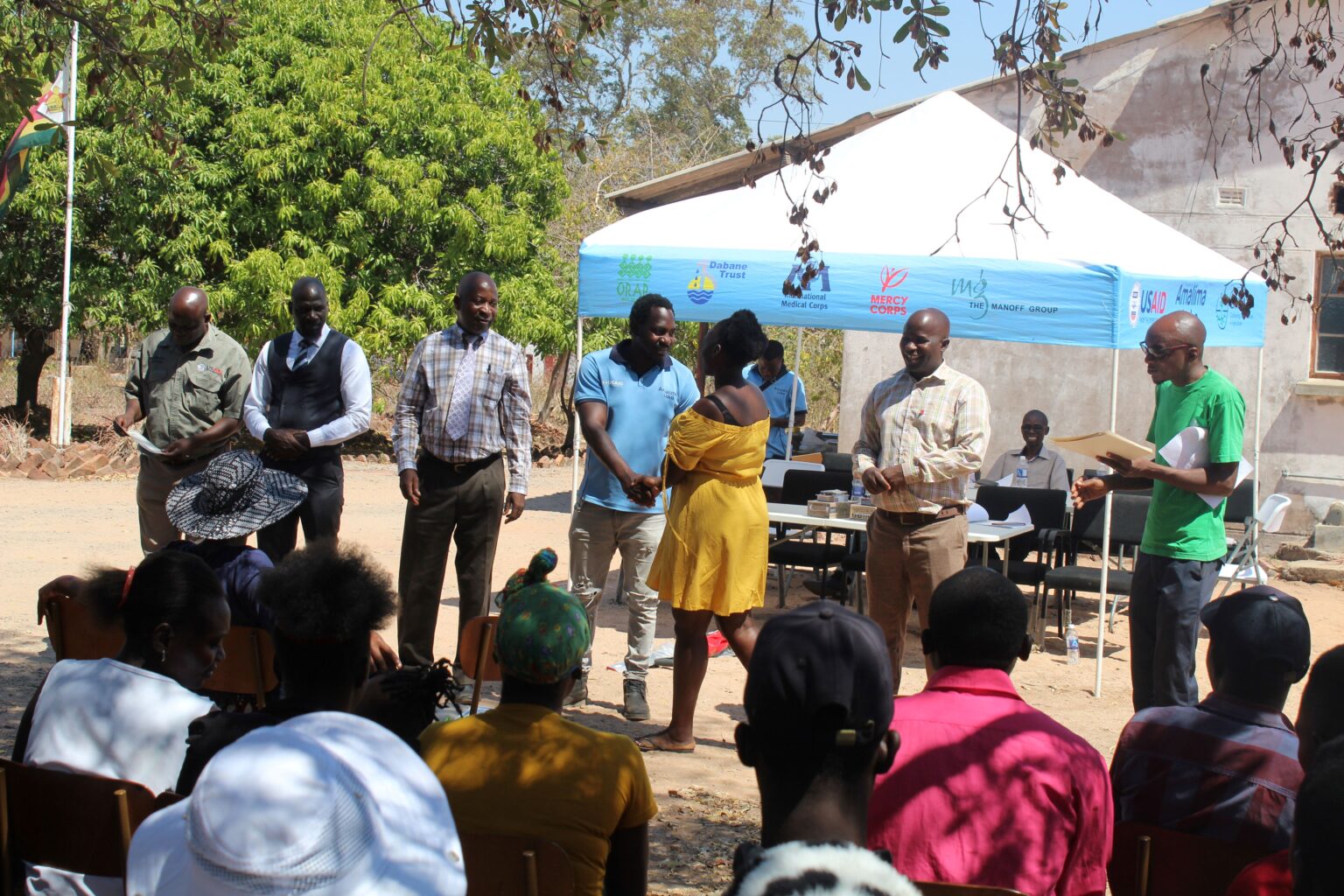
82 Binga District youths who underwent a skills training program under the USAID funded Amalima Loko project in conjunction with the Ministry of Youth Empowerment, Development and Vocational Training graduated on the 3rd of September 2024.
The graduation ceremony was held at the Ministry of Youth Empowerment, Development and Vocational Training offices in Binga Centre.
This initiative which came after a comprehensive Community Visioning Process in the district which established the gap, aimed to equip young individuals with entrepreneurial skills and resources to foster economic self-sufficiency and address local employment needs.
Silveira House, a sub-grantee under the Amalima Loko Program, leveraged its over 50 years of expertise in skills development across southern Africa to conduct extensive training in various trades, including cosmetology, phone repair, welding, building, and carpentry, using a multi-faceted approach.

The event was graced by several notable guests, including representatives from Agricultural and Rural Development Advisory Services (ARDAS), the Ministry of Women Affairs, Community, Small and Medium Enterprises Development (MWACSMED), the District Development Coordinator (DDC), and the Ministry of Labour and Social Welfare, amongst others.
Of a total 231 youths (90 females and 141 males) who participated in the training program 82 successfully graduated (58 males and 24 females), Whilst the remaining 149 participants (83 males and 66 females) are yet to complete their training as they are still on attachment.
Addressing the community members who had graced the occasion and the graduates themselves, Binga DDC, Mr. Land Kabome who was the Guest of Honour emphasized the importance of creating employment opportunities rather than merely seeking them.
The DDC also commended Amalima Loko’s Community Visioning (CV) approach, which contrasts with the more traditional top-down methods of many development agents.
Implemented by Cultivating New Frontiers in Agriculture (CNFA), Amalima Loko is a consortium of organisations which also include Organization of Rural Associations for Progress (ORAP), Dabane Trust- Water Workshops, The Manoff Group, International Medical Corps and Mercy Corps which all have a different mandate in the program.
ORAP is spearheading the Community Visioning Process in the Amalima Loko Program which started in 2020 and is scheduled to conclude in 2027.
Silveira House not only awarded certificates to the graduates but also established learning platforms for ongoing support.
These platforms included WhatsApp groups designed to connect participants with potential customers and to facilitate peer-to-peer learning and experience sharing.
To facilitate their entrepreneurial journey, each youth was provided with a starter kit relevant to their chosen field.
Continued guidance and support will be provided to ensure that these individuals can thrive as entrepreneurs and contribute positively to the local economy.
The next phase of the initiative involves tracking the progress of the graduates, particularly their income earnings and overall success in their respective businesses.
The youth training program represents a significant step towards addressing unemployment challenges within the community.
By equipping youths with practical skills and entrepreneurial tools, and by creating a supportive network through learning platforms, the initiative has set a foundation for long-term success.
The collaborative efforts of Silveira House, Amalima Loko, and various stakeholders demonstrate a commitment to empowering the next generation and fostering sustainable economic development.
